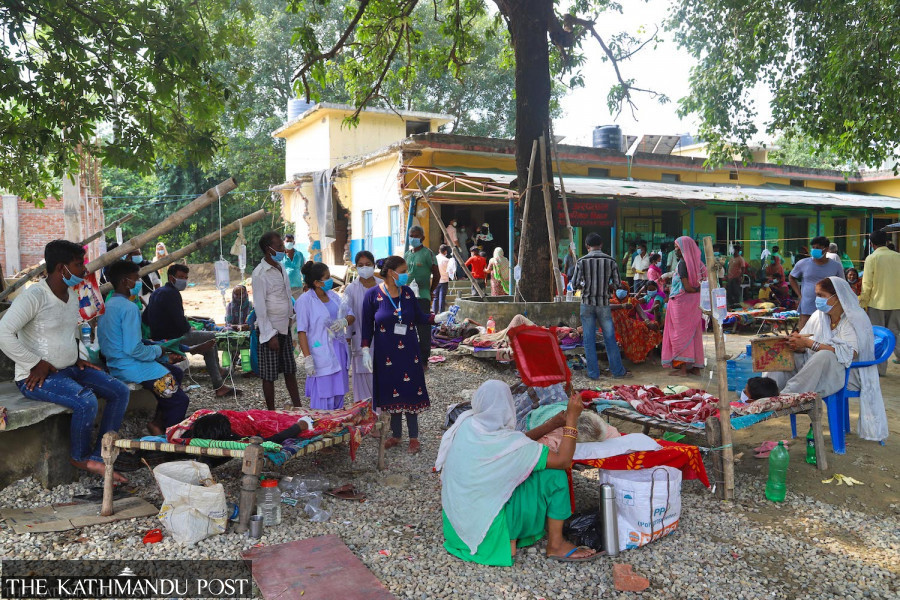Editorial
Ad hocism in healthcare
The prerogative of providing health care as a service rests heavily on the government.
Lack of attention concerning health facilities in rural Nepal is a well-documented fact. Yet, nothing is done to maintain the existing standards of health care, let alone the talk of improving the services. Such disregard for something so basic is nothing short of apathy. These are peaceful times, and thus efforts should be directed towards uplifting the well-being of people; building schools and hospitals should be high on the list of priorities. In an unfortunate twist of fate, the district hospital in Salyan has halted surgical and delivery services, citing a lack of qualified doctors needed to carry out the tasks.
The case of the Salyan hospital is a reflection of the state's negligence concerning the provision of primary health facilities in the region. With both the MD doctors being transferred, the hospital is left with doctors who cannot provide those services. It seems the authorities take decisions on transfers based on their whims and fancies and without even pausing for a moment to reflect on the consequences of their decisions. People from areas as far as Rukum east and Rukum west rely on the services of the district hospital in Salyan. This abrupt disruption to critical medical necessity has left many people in the lurch, seeking alternative destinations, causing them much hardship and adding to their financial burden.
In a country that consistently performs poorly on most health indicators, we need to rely on the efficient use of the available doctors at our disposal. The impact of brain drain on the medical profession in Nepal is quite visible. As per the findings released by the World Bank, the doctor to patient ratio stood at 0.7 (per 1,000 people) in 2018. While most well-to-do nations fared better than the acceptable requirement of 1 (per 1,000 people), Nepal languishes at the bottom of the index. It is a different scenario for the cities where hospitals do have the resources to cater to the needs of the people.
Since private individuals operate most hospitals, the for-profit motive has had a mushrooming effect in the cities in the decades that have followed. But the private sector would not even touch these areas with a bargepole. And while most people in the rural areas live in meagre subsistence, admissions to private hospitals are usually beyond their reach. Thus, the prerogative of providing health care as a service rests heavily on the government. Such services in the rural areas, as we can witness, have been operated without much thought. Ad hocism should have no place in governance at all, let alone in matters concerning people's health.
Where politicians are busy squabbling over berths and privileges, what expectations can we aspire to in their support on pressing matters? And why would they waste their precious effort and time on such inconsequential issues that affect them the least? For the politicians, the privileges of office would assuredly offer them VIP treatment in the best hospitals in a foreign land, usually at the taxpayer's expense.




 18.12°C Kathmandu
18.12°C Kathmandu













